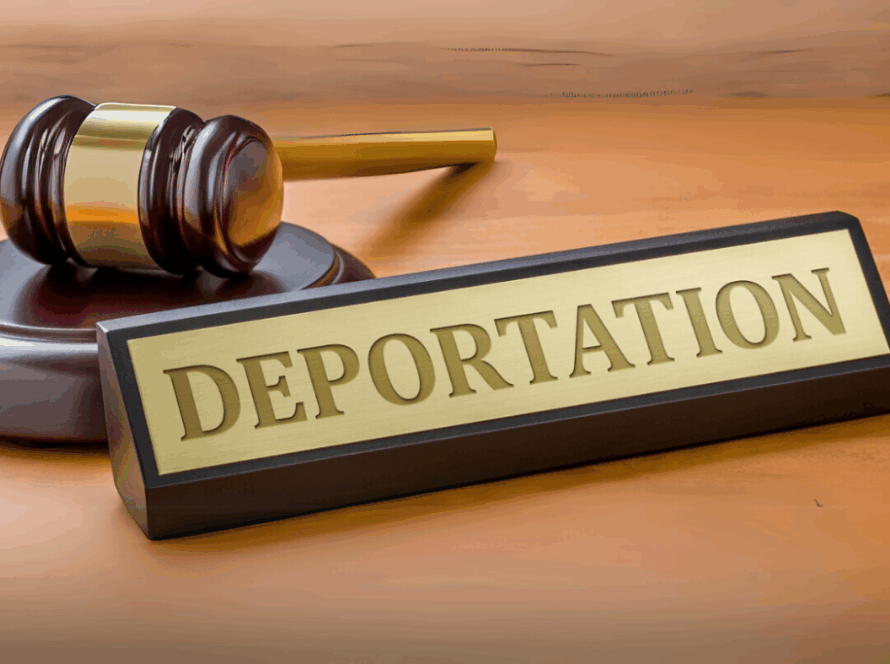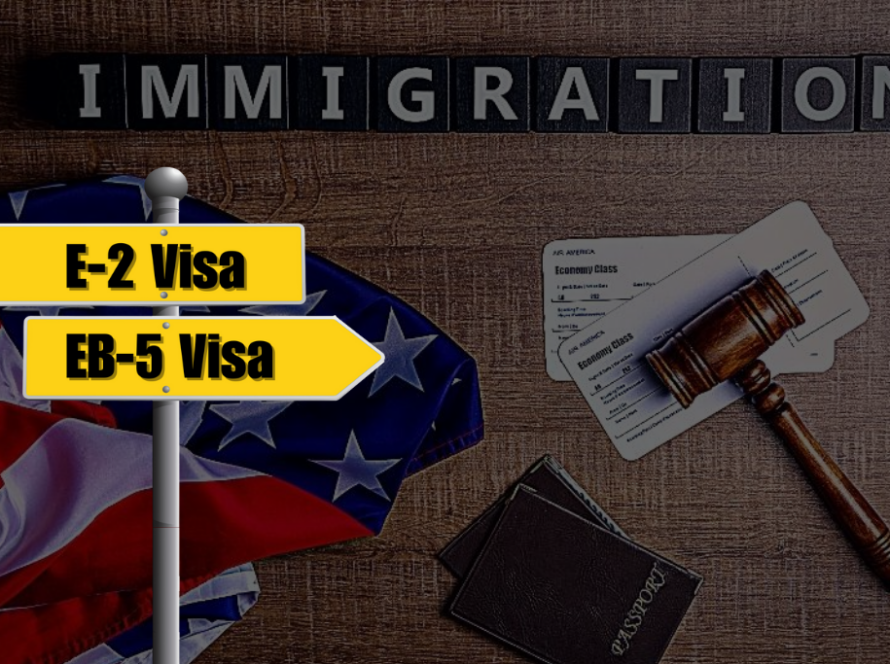Introduction
Applying for a U.S. visa or green card can be one of the most exciting and nerve-wracking experiences in your life. Whether you’re pursuing a new job, reuniting with family, or building a future in a new country, immigration is a big step—and unfortunately, many applicants find themselves facing denials they never saw coming.
Immigration denials can happen for a wide range of reasons—some simple, like missing paperwork, and others more complex, like inadmissibility due to past legal issues. The frustrating part? Many of these denials are avoidable with proper preparation and awareness.
In this blog, we’ll walk you through the most common reasons immigration applications get denied and, more importantly, what you can do to avoid them. Whether you’re applying for a work visa, green card, or even U.S. citizenship, understanding what USCIS and consulates look for is critical to your success.
We’ll break things down clearly and practically—no legal speak, just real talk. Because getting approved isn’t just about filling out a form; it’s about showing you meet all the criteria, honestly and thoroughly. Ready to boost your chances and move one step closer to your dream? Let’s dive in.
1. Incomplete or Inaccurate Forms
Why does it happen?
One of the most common—and most frustrating—reasons for denial is submitting forms with missing information, unchecked boxes, or inconsistencies between answers.
How to avoid it:
- Triple-check everything before submission.
- Always use the most up-to-date forms from the official USCIS site.
- If unsure about any question, consult an immigration attorney rather than guessing.
- Make sure all personal data (names, dates, places) is consistent across all documents.
Pro tip: USCIS doesn’t always ask you to fix errors—they may simply deny the application. Don’t give them a reason to.
2. Missing Supporting Documents
Why does it happen?
Applicants often forget to include required evidence, such as identity proof, employment letters, or financial records. Missing a single required document can lead to rejection.
How to avoid it:
- Carefully read the checklist for your specific visa category.
- Don’t just skim—verify if original or certified copies are needed.
- Translate non-English documents with certified translations.
- Always include a cover letter listing everything enclosed.
Common missing items include:
- Passport copies
- Marriage/birth certificates
- Job offer letters
- Affidavits of support
- Tax records
3. Inadmissibility Issues
Why does it happen?
You may be deemed “inadmissible” to the U.S. based on criminal history, past immigration violations, health concerns, or security threats.
How to avoid it:
- Be honest about your background.
- Minor past issues (like overstaying a visa) may be fixable with a waiver.
- Medical conditions that could pose a public health risk (e.g., tuberculosis) must be disclosed.
- If you have a criminal record, speak to an attorney to understand your eligibility and waiver options.
Inadmissibility doesn’t always mean the end—many cases can be resolved with legal guidance.
4. Lack of Financial Support
Why does it happen?
For many visa types (like family-based green cards), you must show financial support through Form I-864 (Affidavit of Support). If USCIS doubts the sponsor can support the immigrant financially, the case may be denied.
How to avoid it:
- Make sure the sponsor’s income meets or exceeds the poverty guidelines.
- Include recent tax returns, pay stubs, and W-2s.
- If the sponsor’s income is low, a joint sponsor may help meet the requirements.
- Don’t skip supporting documents—strong evidence is key.
5. Fraud or Misrepresentation
Why does it happen?
If USCIS believes you’ve lied on your application or submitted fake documents, your case could be denied, and you may be permanently barred from entering the U.S.
How to avoid it:
- Always tell the truth, even if it feels uncomfortable.
- Don’t rely on “document fixers” or unlicensed agents.
- Double-check translations, names, and dates—accidental errors can look suspicious.
- Avoid embellishing job titles or qualifications.
Even a small lie can have huge consequences. Honesty is always your safest bet.
6. Insufficient Evidence of Relationship (Family-Based Visas)
Why does it happen?
USCIS may suspect the relationship isn’t genuine, especially in spousal or fiancé visa cases. A lack of evidence can result in denials for marriage fraud suspicion.
How to avoid it:
- Submit plenty of proof: photos together, joint bank statements, travel history, messages, affidavits from friends or family.
- Be prepared for an interview—practice answering questions honestly.
- Keep all correspondence and documentation from your relationship timeline.
- If the relationship is long-distance, show communication history over time.
7. Failing the Visa Interview
Why does it happen?
A poor interview—nervous answers, conflicting information, or a lack of preparation—can raise red flags and lead to denials.
How to avoid it:
- Practice common questions ahead of time.
- Be honest and consistent.
- Dress appropriately and arrive early.
- Bring a complete set of documents, even if you submitted them earlier.
If you’re applying for a fiancé or spousal visa, make sure both of you understand key relationship details. Interviewers are trained to spot inconsistencies.
8. Overstaying Previous Visas
Why does it happen?
If you’ve overstayed a visa in the past, even by accident, USCIS might deny your new application or ban you for years.
How to avoid it:
- Always track your authorized stay and leave the U.S. on time.
- If you’ve overstayed, consult a lawyer before applying for a new visa.
- You may qualify for waivers, but applying without a strategy can lead to automatic bars.
9. Applying for the Wrong Visa Category
Why does it happen?
Sometimes applicants choose a category that doesn’t match their background or job offer. USCIS may deny the application simply because it’s the wrong fit.
How to avoid it:
- Understand the eligibility for each visa class.
- Don’t apply for a tourist visa if you plan to work or marry in the U.S.
- Work with your employer or attorney to select the correct category—this is not the place to guess.
10. Failure to Maintain Status
Why does it happen?
If you’re already in the U.S. on a visa and apply to adjust status, any period of unauthorized work, expired visa, or violation of terms can affect your application.
How to avoid it:
- Always stay in legal status while in the U.S.
- Don’t work without authorization.
- Keep a paper trail—school enrollment, job contracts, legal filings, etc.
Final Checklist to Avoid Denial
Before you hit submit, go through this quick checklist:
- Did you use the correct form version?
- Is every section filled out completely and accurately?
- Did you include all supporting evidence?
- Have you disclosed all past immigration and legal history?
- Did you double-check translations, names, and dates?
- Are your financial documents strong and clear?
- Did you prepare for your interview?
Final Thoughts
Immigration is not just a paper process—it’s a life decision, often involving years of planning, sacrifice, and hope. A denial can be heartbreaking, but in many cases, it can also be avoided.
The key is preparation. By understanding the most common pitfalls and taking steps to avoid them, you dramatically improve your chances of success. When in doubt, work with a licensed immigration attorney who can guide you through your specific case and help avoid costly mistakes.
Your dream is valid—and with the right approach, it’s absolutely achievable.
FAQs
1. Can I reapply after an immigration denial?
Yes, in most cases, you can reapply, especially if you correct the issue that caused the denial.
2. How do I know if I need a waiver for inadmissibility?
You’ll typically be notified. An immigration attorney can confirm if a waiver applies to your case.
3. Can I appeal a USCIS decision?
Yes, you can appeal or file a motion to reopen, depending on your case type.
4. Will a small mistake on a form cause denial?
Yes, sometimes even small errors or inconsistencies can trigger a denial. Double-check every detail.
5. Do I need a lawyer for my immigration case?
Not required, but highly recommended—especially for complex cases or if you’ve had a denial in the past.


